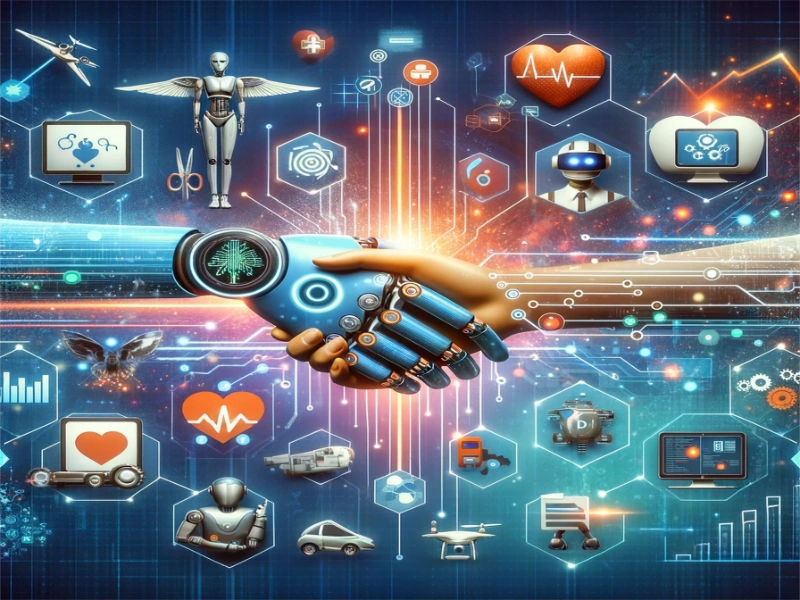- Artificial intelligence is increasingly integral across multiple sectors, including transportation, healthcare, and media. It’s transforming practices such as autonomous vehicle development, disease detection, and content creation. Major corporations and institutions invest heavily in AI, recognising its potential to streamline operations and enhance human capabilities.
- AI’s rapid evolution promises substantial economic benefits, potentially adding up to $15.7 trillion to the global economy by 2030. Its adoption accelerates efficiency and innovation, driving forward industries and economies at an unprecedented rate. Companies are particularly interested in AI for its ability to optimise and automate processes.
- While AI automates tasks, human oversight remains critical to manage and correct AI outputs, such as “AI hallucination” where AI generates plausible but incorrect information. The collaboration between AI and human intelligence is essential for maximising productivity and mitigating risks associated with unsupervised AI applications.
Artificial intelligence (AI) is significantly transforming industries by automating and enhancing processes, with a projected addition of $15.7 trillion to the global economy by 2030. Key sectors like transportation, healthcare, and media have adopted AI to improve functions such as autonomous vehicle operation, disease detection, and content generation.
However, the integration of AI necessitates careful human oversight to correct errors and manage outputs, especially to address the issue of AI generating misleading information. The synergy between AI and human input is crucial for maximising efficiency and ensuring the reliability of AI applications across various fields.
AI economic impact
Artificial intelligence is poised to significantly boost the global economy, with predictions estimating a potential increase of $15.7 trillion by 2030. This surge is expected as AI enhances efficiencies and opens new avenues for innovation across various sectors. Industries such as healthcare, automotive, and finance are particularly poised to benefit from these advancements, leveraging AI for everything from disease detection to autonomous vehicle navigation.
Also read: Meta’s all-white male AI council sparks diversity concerns
Industries adopting AI
AI’s influence is rapidly permeating various industries, driving a significant shift in operations and capabilities. In transportation, AI is critical in developing autonomous vehicles, while in healthcare, it improves disease diagnosis and treatment plans through data analysis. The media sector also utilises AI to automate content generation, reducing the time needed for producing news articles and reports. This widespread adoption underscores AI’s role as a transformative technology across different fields.
Also read: DELL introduces AI-capable products, ties deeply with NVIDIA
AI and human collaboration
Despite AI’s capabilities in automation and data processing, human oversight remains indispensable. AI systems, while powerful, can still produce errors such as generating plausible but incorrect data—a phenomenon known as AI hallucination. Thus, maintaining a balance between AI automation and human intervention is crucial. Humans need to monitor and adjust AI outputs to ensure accuracy and relevance, especially in critical fields like journalism and healthcare, where inaccuracies can have significant consequences.

